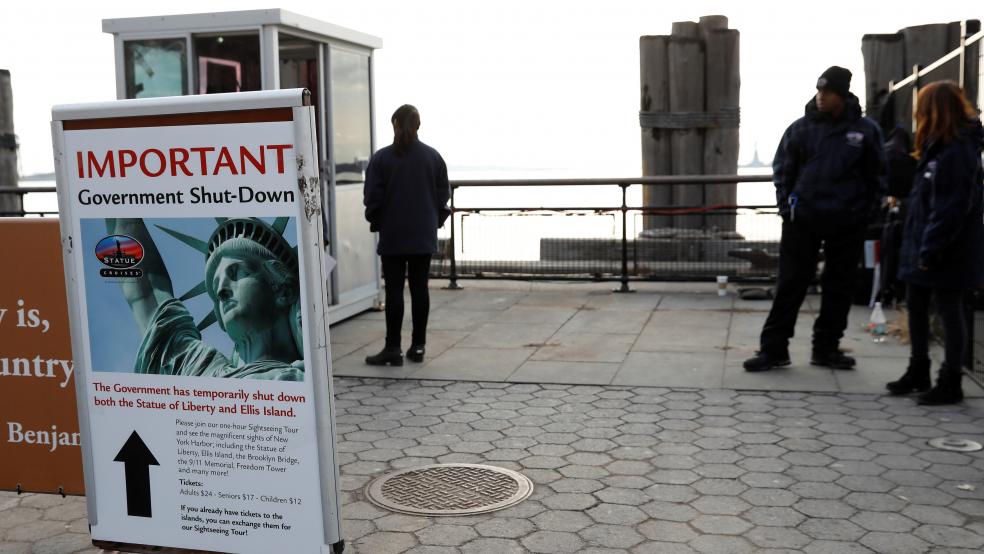(Reuters) - Thousands of federal workers faced uncertainty about the status of their jobs and paychecks after U.S. Senate leaders failed to reach an agreement to end a government shutdown before the work week begins on Monday.
Funding for federal agencies ran out at midnight on Friday and was not renewed amid a dispute between U.S. President Donald Trump and Democrats over immigration.Late on Sunday, the Senate scheduled a vote on a stopgap spending measure for noon on Monday (1700 GMT), ensuring the federal government would stay shut in the morning and leaving workers uncertain how long it would last."This is incredibly stressful," said Jessica Klement, vice president at the National Active and Retired Federal Employees Association, which represents more than 20,000 workers. "Essential employees must report to work without knowing when they'll be paid next," she said. "Non-essential employees will be forced to stay home without pay, not knowing if back pay will be provided." Some employees may not have received notice of their status on Friday, she added, so they could be going into work on Monday morning only to be sent home again.But the Smithsonian Museum announced on its website that its District of Columbia museums, research centers and the National Zoo would remain open on Monday using existing funds, but their status beyond then was uncertain. The U.S. Office of Professional Management advised that all federal employees refer to their home agency for guidance on reporting for duty.During shutdowns, non-essential government employees are furloughed, or placed on temporary unpaid leave. Those deemed essential, including those dealing with public safety and national security, keep working.The last shutdown, in October 2013, lasted more than two weeks, and more than 800,000 federal employees were furloughed.There is no official tally of how many would be off work this time. But local economies could suffer in communities where thousands of non-essential personnel are likely to be off work, from Norfolk, Virginia, and Fayetteville, North Carolina, to Lakewood, Washington, and Oceanside, California.The Centers for Medicare and Medicaid Services will continue to process applications for open enrollment, officials said, and the Medicare program for the elderly and disabled is expected to function largely without disruption.Pamela Gillis Gilbertz, a health communications worker for the U.S. Centers for Disease Control and Prevention in Atlanta, said on Sunday night that Congress had always paid workers retroactively, but that it was not guaranteed. Her agency is expected to keep providing what it calls "minimal support" during the shutdown and has said it will keep responding to influenza outbreaks.Gilbertz, who was planning to log into her office computer system on Monday for further guidance, said shutdowns could disrupt workers' finances, even if they are eventually repaid."For some people," she said, "it definitely will be a hardship if you live paycheck to paycheck and you have bills that you need to pay." (Reporting by Chris Kenning in Chicago; Editing by Daniel Wallis, Peter Cooney and Lisa Von Ahn)U.S. federal workers worry about government shutdown

SHANNON STAPLETON



